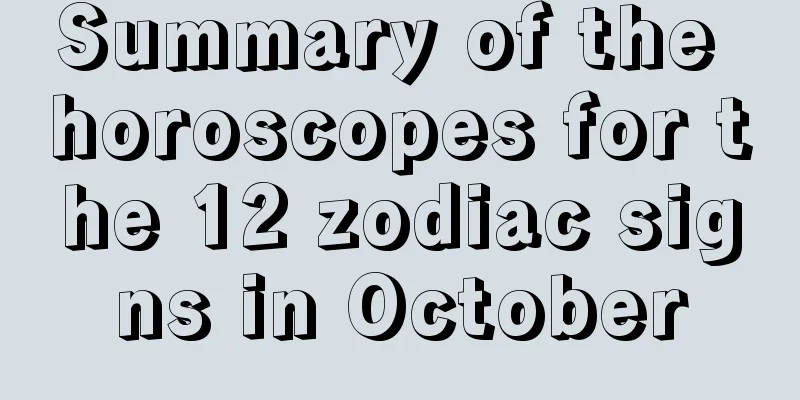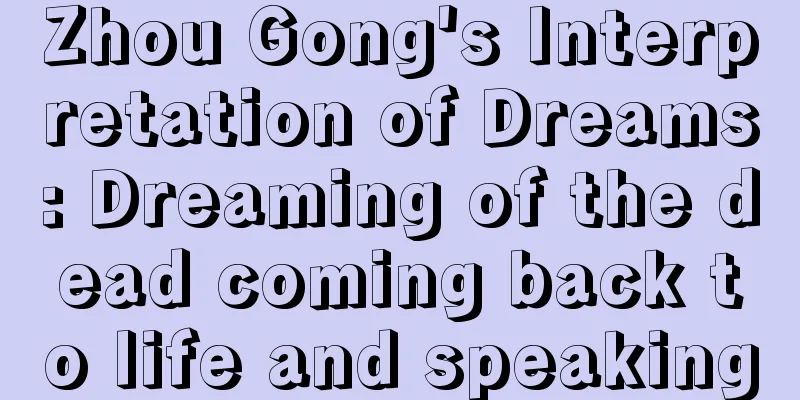Do we need to visit graves on Double Ninth Festival? There is a saying that Double Ninth Festival is called Qingming Festival.

|
Do we need to visit graves on Double Ninth Festival? The Double Ninth Festival is one of China's traditional festivals for worshipping ancestors. Many people visit graves and pay homage to their ancestors on this day. Next, let’s take a look at the relevant content of tomb sweeping and sacrifice on the Double Ninth Festival. Do we need to visit graves on Double Ninth Festival? Do we need to visit graves on Double Ninth Festival? The Double Ninth Festival, New Year's Eve, Tomb-Sweeping Day, the Double Ninth Festival and the Ghost Festival are the four major traditional Chinese festivals for ancestor worship. According to Lüshi Chunqiu, in the pre-Qin period, there were activities of offering sacrifices to the Emperor of Heaven and ancestors in September of autumn when crops were harvested to thank the Emperor of Heaven and ancestors for their kindness. Therefore, many places will take the opportunity of climbing mountains during the Double Ninth Festival to pay homage to their ancestors’ tombs and commemorate their ancestors. The custom of tomb sweeping and offering sacrifices on the Double Ninth Festival is still very popular, but the forms of ancestor worship vary from place to place due to different customs. In many places such as Tonglu in Zhejiang, Putian in Fujian, Taiwan, and Singapore, people still "prepare pigs and sheep to worship their ancestors" on September 9, which is called the Autumn Sacrifice. It is understood that today, the descendants of Confucius in the Pearl River Delta will go to the Fengming Ancient Tomb in Baiyun District, Guangzhou to worship their ancestors on the Double Ninth Festival every year - worshipping Taigong, which is an ancient family custom. Tomb-sweeping customs on the Double Ninth Festival in different regions Fujian People in Putian, Fujian also have the custom of worshiping their ancestors on the Double Ninth Festival. They celebrate Double Ninth Festival to worship their ancestors more than Qingming Festival, so there is a saying that March is the Small Qingming Festival and Double Ninth Festival is the Big Qingming Festival. Moreover, the ninth day of the ninth lunar month every year is the day when Mazu passed away. People who believe in Mazu flock to the Mazu temple to offer sacrifices and worship in order to seek her blessing. Guangdong The Double Ninth Festival ancestor worship is commonly known as "worshiping Taigong Mountain" in Cantonese, and all family members must participate. The Double Ninth Festival is a day of worship after the harvest to thank ancestors for their kindness and pray for their blessings, so the atmosphere is relaxed and pleasant, without any sorrow. There are many rules and regulations for tomb sweeping and ancestor worship. First, worship the public ancestor, then worship the ancestors of each branch in turn, and finally each family worships its own ancestors. |
<<: List of auspicious days and times for October 7, 2017
>>: Tang Liqi's daily horoscope 2017.09.20
Recommend
Test when love will come and in what situations will you meet your true love
Sometimes, love likes to play hide-and-seek with ...
Girls' names starting with Xuan
A name is a birth gift given to us by our parents...
What does it mean to dream of giving birth to twins?
According to Zhou Gong's Interpretation of Dr...
Susan Miller's complete horoscope for January 2017: The gorgeous new moon in Taurus gives you perfect possibilities
The stars are shining for you, dear Taurus. Thank...
What does it mean to dream about giving birth to a child?
What does it mean to dream about giving birth to ...
Constellation Secrets: Constellations that break up only after having a backup lover
Some zodiac signs are very cautious in love. If t...
A perfect name for a boy named Xiao
A name is a birth gift given to us by our parents...
2018 fortune test: What kind of difficulties will you encounter in the first half of the year?
It is inevitable that we will encounter some setb...
Boys' names with the character "木" on the radical are a must-read for naming boys.
What are some boy names with the wood radical? Wh...
A good name for a boy named You who is well-educated and talented
To select a good name for a knowledgeable and tal...
This is the most insane zodiac sign I have ever seen!
Even though I have seen some very nervous (ahem) ...
A fashionable boy's name with the surname Feng
Chinese culture is profound and extensive, and Ch...
What are the things to pay attention to when you go to Nanyue to worship Buddha? What are the things to pay attention to when you make wishes in Hengshan?
Burning incense and worshipping Buddha at Nanyue ...
Master's analysis of the dragon and what is the best match for the king of men. The dragon zodiac marriage compatibility table
People who belong to the Dragon sign are the king...
Nice names for girls with the surname Teng
When parents name their children, they often pay ...









